Applicants
-
Jason Kang
I am interested in the biosafety measure for the safer use of genetically modified bacteria. By controlling bacterial growth and survival using the engineered metabolic pathway for phosphorus, we developed novel biocontainment strategy which is robust, economical, and easy to apply.
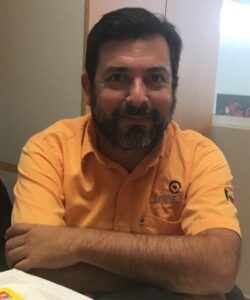
Degree in Biology from the Universidad Veracruzana, Mexico. Master’s degree in Bioethics from the Anahuac University, Mexico. Doctorate in Sciences from the Scientific Research Center of Yucatán A.C., Mérida, Yucatán. Mexico. Postdoctoral fellow at the Donald Danforth Plant Science Center. St.Louis Missouri, United States.
Currently:
-Titular Type A Researcher at the Center for Research and Assistance in Technology and Design of the State of Jalisco A.C. (CIATEJ), Zapopan Headquarters. Department of Industrial Biotechnology, Zapopan, Jalisco, Mexico. Distinction by the National System of Researchers (SNI I).
-General Coordinator of the “National Network of Synthetic Biology of Mexico”.
-Coordinator of the research sub-line “Synthetic Biology” within the Department of Industrial Biotechnology of the Center for Research and Assistance in Technology and Design of the State of Jalisco A.C. (CIATEJ). In the working group, state-of-the-art sequencing (Oxford Nanopore Technologies) is performed in yeast and bioinformatic analysis of omics data (genome, transcriptome, metagenome). Design of transformation systems through synthesis and Gibson assembly. We use CRISPR-Cas9, dCas9 and Cas13, in order to edit or regulate genes to check functionality in cell lines of animals, bacteria, yeast, marine organisms and plants.

Degree in Biology from the Universidad Veracruzana, Mexico. Master’s degree in Bioethics from the Anahuac University, Mexico. Doctorate in Sciences from the Scientific Research Center of Yucatán A.C., Mérida, Yucatán. Mexico. Postdoctoral fellow at the Donald Danforth Plant Science Center. St.Louis Missouri, United States.
Currently:
-Titular Type A Researcher at the Center for Research and Assistance in Technology and Design of the State of Jalisco A.C. (CIATEJ), Zapopan Headquarters. Department of Industrial Biotechnology, Zapopan, Jalisco, Mexico. Distinction by the National System of Researchers (SNI I).
-General Coordinator of the “National Network of Synthetic Biology of Mexico”.
-Coordinator of the research sub-line “Synthetic Biology” within the Department of Industrial Biotechnology of the Center for Research and Assistance in Technology and Design of the State of Jalisco A.C. (CIATEJ). In the working group, state-of-the-art sequencing (Oxford Nanopore Technologies) is performed in yeast and bioinformatic analysis of omics data (genome, transcriptome, metagenome). Design of transformation systems through synthesis and Gibson assembly. We use CRISPR-Cas9, dCas9 and Cas13, in order to edit or regulate genes to check functionality in cell lines of animals, bacteria, yeast, marine organisms and plants.

Having earned my B.Tech in Food Technology from Jadavpur University, Kolkata, I got the opportunity to join the School of Biochemical Engineering, Indian Institute of Technology (Banaras Hindu University) Varanasi, as M.Tech graduate and later got Ph.D under the supervision of Prof. Mira Debnath Das. I earned Ph.D (Biochemical Engineering) on an exceptionally well researched project on “Bioprocess strategy development on production and characterization of antifungal protein from Aspergillus giganteus”.
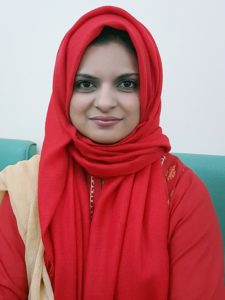
I have completed my PhD in Molecular Genetics from King’s College London, UK, I came back to Pakistan to join University Institute of Biochemistry and Biotechnology, PMAS-Arid Agriculture University Rawalpindi, Pakistan. I established my research group in 2016 and became the first person in our Institution to work on CRISPR based genome editing. Currently leading my team in establishing the National Center of Industrial Biotechnology at our Institution to further strengthen my work in Metabolic Engineering/Synthetic Biology.
Focused on using synthetic biology to manufacture fragrance and flavor ingredients. Managed the project to make the first musk ingredient (Ambrettolide HC Supreme) made from sugar on a commercial basis starting with an intermediate produced in a 135,000 liter fermenter.
Dr. S. Venkata Mohan is working as a Scientist in CSIR-Indian Institute of Chemical Technology (CSIR-IICT), Hyderabad since 1998. He has done his B.Tech (Civil Engineering), M.Tech (Environmental Engineering) and Doctoral research in engineering discipline from Sri Venkateswara University, Tirupati. He was Visiting Professor at Kyoto University (2005), Alexander von Humboldt (AvH) Fellow at Technical University of Munich, Germany (2001-02) and Kyung Hee International Fellow, South Korea (2018). Dr Mohan research majorly intended to understand and respond to the human-induced environmental change in the framework of sustainability in the interface of environment and bioengineering. He specifically explored the potential of negatively valued waste as viable feedstock for harnessing clean energy and biomaterials by developing novel and sustainable technologies through nexus approach. His main research interests are in the areas of Advanced Waste Remediation, Aciodogenesis, Microbial Electrogenesis, Photosynthesis, CO2 biosequestration, Circular Bioeconomy, Self-regenerative systems and Biorefinery. He also undertook various research projects associated with societal relevance and industrial/consultancy projects in the area of environment and management. He has successfully demonstrated the production of Low carbon (Bio)Hydrogen with simultaneous waste remediation at pilot scale and established a first of its kind waste biorefinery platform. Dr Mohan authored more than 350 research articles, 60 chapters for books, edited 4 books and has 9 patents. His publications have more than 18,900 citations with an h-index of 75 (Google Scholar). He has guided 27 PhDs, 2 M.Phils and more than 100 M.Tech/B.Tech/M.Sc students.
Dr Mohan is recipient of the coveted ‘Shanti Swarup Bhatnagar (SSB) Prize’ for the year 2014 in Engineering Sciences from the Government of India. He also received several awards and honors, which include, ‘DBT-Tata Innovation Fellow 2018’ by Department

Peter J. Chung is an incoming Assistant Professor of Physics and Astronomy at the University of Southern California, beginning January 2021.
He was previously a Kadanoff-Rice Postdoctoral Fellow at the University of Chicago studying proteins involved in Parkinson’s disease. He received his PhD in physics at the University of California, Santa Barbara and undergraduate degrees in physics and materials engineering at the University of California, Berkeley.
Nima Hajinajaf is currently a Ph.D. student of Chemical Engineering at Arizona State University in Prof. Varman’s Lab. He received his master’s in Chemical Engineering from the University of Tehran. His previous work was on “Photobioreactor optimization for CO2 removal and wastewater treatment by microalgae”. Currently, his work is on the Metabolic Engineering of Cyanobacteria and Bacteria to produce chemicals
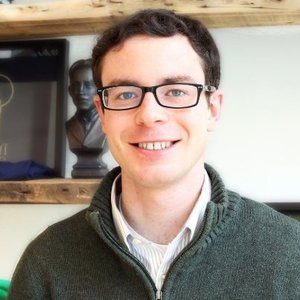
Matt was an early team member of the NYC-based global education start-up, General Assembly, and helped spearhead GA’s first programs in NYC and Los Angeles. Before this, he worked as a strategy consultant with Stax, Inc. in Boston and as an analyst for a SF-based start-up, Gratio Capital. Matt has also worked with the founding teams of several science based ventures, including Agile Sciences and Innova Dynamics. He is a graduate of the Management and Technology and Integrated Product Design (MSE) programs at the University of Pennsylvania. In Philadelphia, Matt served on the board of Philly Startup Leaders and as an Engagement Manager for the cleantech practice of Wharton’s Small Business Development Center. He is an avid runner and when not at Harlem Biospace he can likely be found running through the city.
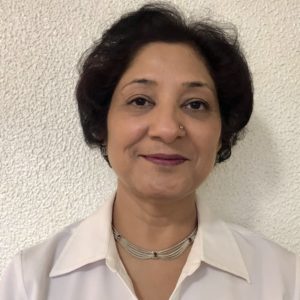
Dr. Gul Sadiq Afshan is a talented biochemist and molecular biologist with 30 years’ teaching, research, and program development experience. She acquired her Ph. D at the University of WI, Milwaukee (UWM) and her post-doctorate at the School of Medicine and Public Health -University of WI, Madison. She envisioned, founded (2009) and governed (2009-2017) the stand-alone, and innovative undergraduate BioMolecular Engineering degree program, as a founding director, that attracts 50% female student population sustainably at the Milwaukee School of Engineering (MSOE). She is a passionate and effective teacher with extensive industry and community outreach experience. She is a recipient of over $6 million in grants from private and governmental bodies like NSF and NIH and is also a recipient of ASEE North Midwest Outstanding Educator Award, Outstanding Mentor Award, and Falk Excellent Engineering Educator Award. She also serves as an affiliate professor for the USA national PLTW program and has been a leader for bringing many university-level curricula, assessment, vision change, and mindset projects to fruition. She currently is a full professor at MSOE teaching BioMolecular Engineering.
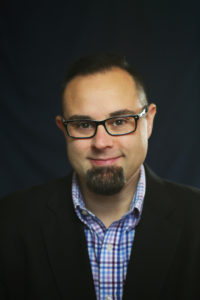
Dr. Michael W. Nestor is the Director of Neural Stem Cell Research The Hussman Institute for Autism and Co-Chair, Neural Stem Cell Working Group, Center for Stem Cell Biology & Regenerative Medicine at the University of Maryland, School of Medicine. Dr. Nestor received his Ph.D. in Neuroscience from The University of Maryland, School of Medicine and completed postdoctoral fellowships at the National Institutes of Health, Rutgers University as an NIH IRACDA Fellow, and at The New York Stem Cell Foundation, where he was also a Staff Scientist. Dr. Nestor is an AAAS Executive Branch Science & Technology Policy Fellow in the Office of Science and Advanced Scientific Computing Research in the Department of Energy where he is focused on the biosecurity and synthetic biology portfolios in the DOE. Michael is also a Adviser at The University of Maryland, Maryland Momentum Fund/UM Ventures-Department of Technology Transfer and the Abell Foundation. Dr. Nestor is a neurophysiologist with 15 years of experience and a focus on electrophysiology, neural stem cell biology, human genetics and project management. His laboratory works on assay development with an emphasis on cell based pre-clinical high throughput drug screens and phenotyping assays involving human iPSC-derived cortical organoids from individuals with autism.
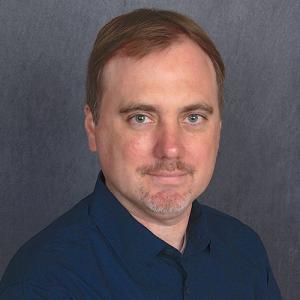
Todd J. Treangen, Ph.D. is an Assistant Professor in the Department of
Computer Science at Rice University. Prior to joining Rice, Dr. Treangen was
a Research Scientist at the University of Maryland College Park and led the
Bioinformatics group at the National Biodefense Analysis and Countermeasures
Center (NBACC) in Frederick, MD. He received his Ph.D. in Computer Science
in 2008 from the Polytechnic University of Catalonia (Barcelona, Spain). His
research group focuses on solving large-scale computational problems
specific to computational biology, with focus on developing robust software
tools targeted towards biothreat screening, infectious disease monitoring,
and microbial forensics.
Dr. Renee Wegrzyn joined DARPA as a Program Manager in 2016, where she applies the tools of genome engineering and synthetic biology to support biosecurity, enable flexible biomanufacturing, and outpace infectious disease. Her portfolio includes the Living Foundries, Safe Genes, and PREPARE programs. Living Foundries seeks to transform biology into an engineering practice by developing the tools, technologies, methodologies, and infrastructure to prototype and scale engineered microbes that can produce molecules that are of value for government and commercial use. Safe Genes aims to deliver novel biological capabilities to facilitate the safe and expedient pursuit of advanced genome editing applications, while also providing the tools and methodologies to mitigate the risk of unintentional consequences or intentional misuse of these technologies. PREPARE (Preemptive Expression of Protective Alleles and Response Elements) is focused applying the tools of genome engineering to create potent, transient, and reversible medical countermeasures to combat biological, chemical, and radiological threats to public health and national security. Prior to joining DARPA as a PM, Dr. Wegrzyn was a Senior Lead Biotechnologist at Booz Allen Hamilton, where she led a team that provided scientific and strategic support in the areas of biodefense, biosecurity, and biotechnical innovation to DARPA and other federal and private institutions. She is a former Fellow of the UPMC Center for Health Security Emerging Leaders in Biosecurity Initiative. Dr. Wegrzyn also led research and development teams in the biotech industry focused on the development of multiplex immunoassays and peptide-based disease diagnostics. Dr. Wegrzyn holds Doctor of Philosophy and Bachelor of Science degrees in Applied Biology from the Georgia Institute of Technology, with an undergraduate minor in Bioengineering. She completed her postdoctoral training as an Alexander von Humboldt Fellow in Heidelberg, Germany.